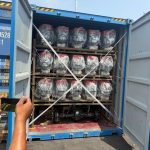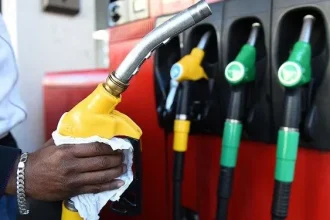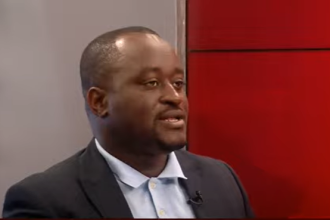Persons found culpable in the collapse of some microfinance companies whose licenses were revoked will be arraigned in the coming days.
The Receiver of the 347 microfinance companies and 23 savings and loans and finance house companies, Mr Eric Nipah is expecting perpetrators to face the law after completion of five dockets over a period of several months of painstaking investigations.
“Within the next week or so, I know that some prosecutions will commence,” Mr Nipah, a Director of PricewaterhouseCoopers Ghana Limited, said.
The dockets have already been sent to the Office of the Attorney General for advice.
Mr Nipah expects the next stage to be rolled out concurrently with other investigations being undertaken by the Economic and Organised Crime Office (EOCO).
Mr Nipah said EOCO have put in place a good asset tracing and recovery mechanism and they have “uncovered quiet a number of landed properties that have been diverted”.
So far, Mr Nipah has recovered almost GHC 500 million in terms of asset realisation, with a projection of GHC 2 billion of assets expected to be retrieved.
Mr Nipah said 96% of depositors claims amounting to GHC5.2billion had been paid with an outstanding of some GHC240m expected to be cleared by the end of July.
As the same time, the Reciever has taken steps to pay outstanding salaries, and benefits of staff whose financial institutions had their licenses revoked.
Auction of properties belonging to collapsed firms.
Meanwhile, The Receiver of some collapsed financial firms has requested bids from the public to sell properties of the collapsed firms to raise money.
Mr Nipah has advertised over 50 used cars, landed property and chattels from the Greater Accra, Ashanti Region and Western Region for auction.
Different brands and models of cars, including Ford Explorer and Everest, Toyota, KIA Picanto and Sportage, Hyundai Accent and Grande, Honda Civic, Mazda, Nissan Hardbody and Frontier, TATA, Isuzu, Citroen and Mitsubishi, are on display.
Background
The apex bank took action to withdraw the licences pursuant to section 123 (1) of the Banks and Specialised Deposit-Taking Institutions Act, 2016 (Act 930), which requires the BoG to revoke the licences of a bank or Specialised Deposit-taking Institution (SDI), when it determines that the institution is insolvent or is likely to become insolvent within the next 60 days.
The BOG cited insolvency and dormancy for the move to sanitise and stabilise the financial sector after it had taken similar action against banks.
The BoG said in a statement that majority of licensed microfinance companies began to show signs of distress from 2014 onwards, as a result of severe under-capitalisation, high cost of operations largely from high and unsustainable interest rates offered to depositors, poor lending and investment practices.
These challenges, the bank said, led to inordinate losses, diversion of customer deposits into private, unprofitable and speculative ventures, general non-compliance with prudential norms, poor corporate governance, weak internal controls, and fraud, among others.
“Consequently, the financial position of these institutions continued to deteriorate, leading to their insolvency with the majority of them ceasing operations and closing their offices with depositors’ funds locked up.
“Even those that have not closed their offices are unable to pay their depositors. This has placed a substantial amount of depositors’ funds at risk,” the release pointed out.
















